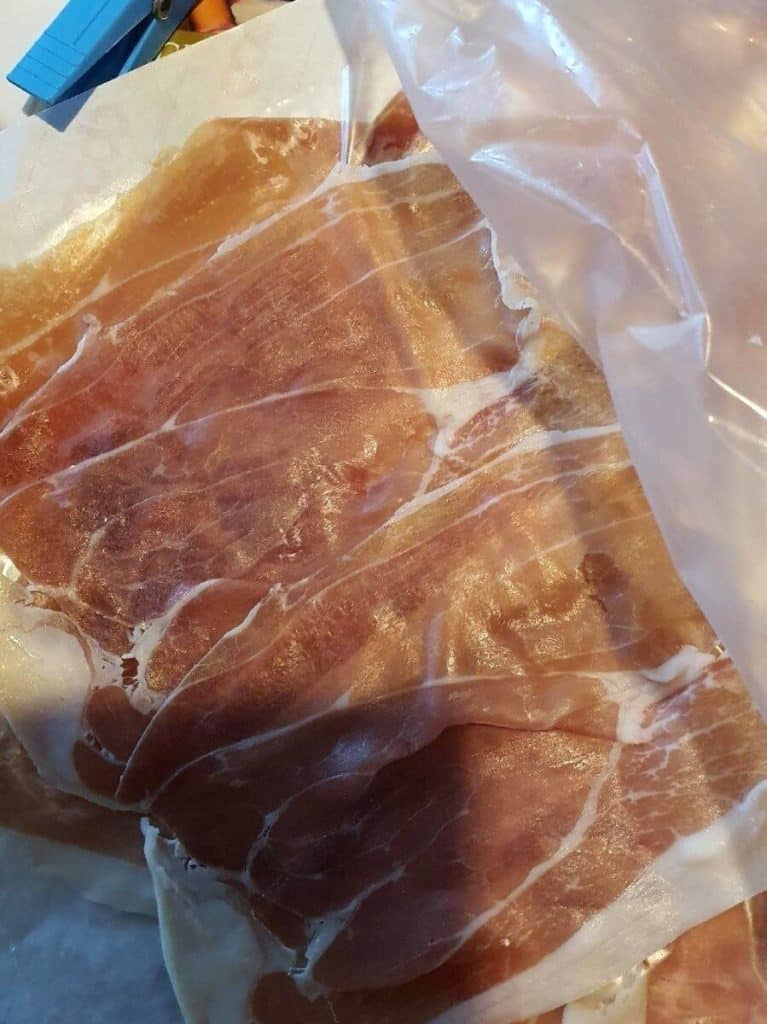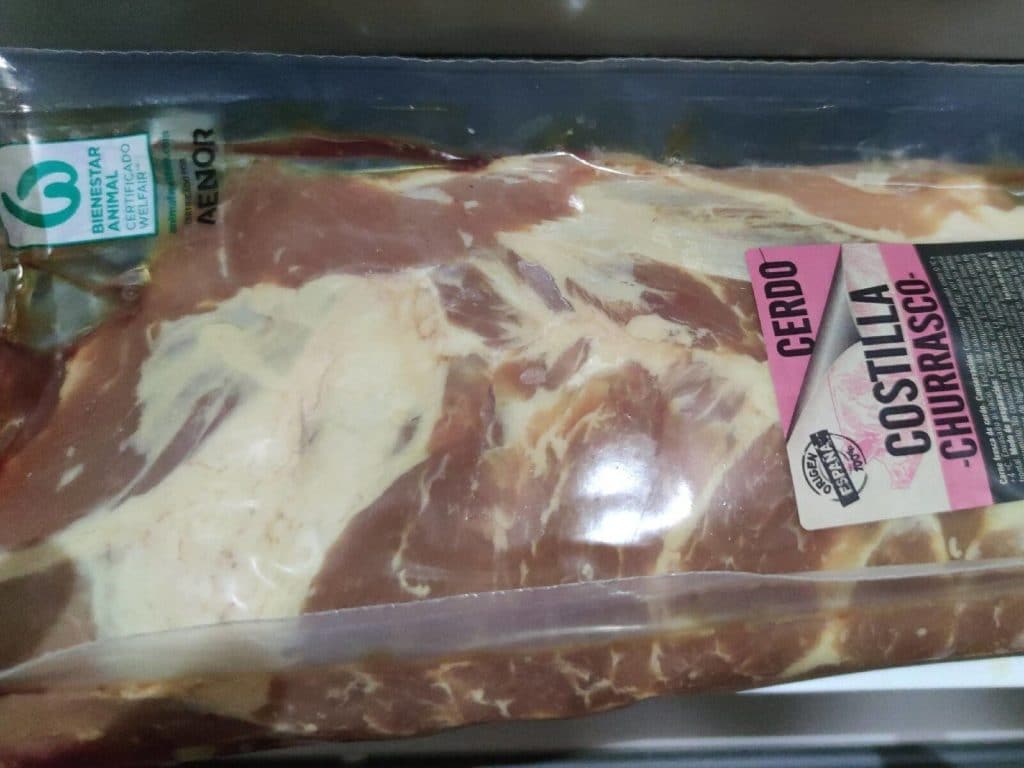Meat lovers know that storing their favorite cuts properly before freezing keeps them fresh and tasty. Wrapping meat in bags or containers acts like a shield, locking in flavor and stopping freezer burn cold. This simple trick keeps steaks juicy and full of flavor, making every bite feel like a treat after thawing. Meat stored carelessly often turns out dry and bland. Trying this easy tip makes frozen meat taste way better. This secret changes how frozen meat looks and tastes, making it a game-changer for anyone who loves rich, bold flavors. Keep reading to uncover the trick that makes frozen meat come alive again.
Freezing food is an excellent way to preserve it and retain its flavor, texture, color, and nutrients, and some people even claim that frozen foods taste better than their non-frozen counterparts.
But what type of bag should you use if you want to freeze meat?

What are the benefits of using freezer bags for meat?
- The bags are reusable.
- The bags are thin enough to fit into most freezers.
- They’re convenient because they come sealed, and you don’t need to measure out the amount of meat you’ll be freezing.
- There are many different brands on the market, so you shouldn’t have trouble finding one that fits your needs.
How do freezer bags keep meat fresh?
- When you put meat into a freezer bag, it doesn’t allow oxygen in. This means that when meat is frozen, the cells in the meat will shrink. But the cell walls won’t rupture, and therefore, the meat will stay safe from bacteria.
- Meat will last longer in the freezer once it’s wrapped in bags. Once you defrost meat, you’ll find that the meat retains more moisture after being frozen in bags than it would otherwise.
- Bags also protect the meat from exposure to water vapor. When you freeze meat in bags, the water vapor can escape the plastic instead of condensing inside the bags and dripping down on the meat.

What types of meat are best suited for freezing in bags?
- Beef, pork, poultry, lamb, veal, and fish are all great candidates for freezer bags. Make sure the bags are labeled correctly, though. Some bags say “to be used for ground beef,” while others indicate ground chicken.
How long can meat be stored in freezer bags?
- It depends on the kind of meat. While you can store certain meats like beef in a freezer for up to six months, ground turkey, ground chicken, and pork tenderloin should only last three months. If you freeze raw bones and other bone-based meats, such as deer, elk, moose, bison, or ostrich, you can expect them to last between six and nine months.
- Because of how well-sealed the bags are, you can freeze almost anything in them—even raw vegetables! Just make sure your vegetables are covered by a layer of oil (so they don’t dry out).
Are there any safety concerns with using freezer bags for meat?
Yes, there are several issues to consider.
First, you may have a problem with contamination if the bag ruptures during freezing.
- Some types of bacteria, like salmonella, E. coli, and listeria, are common in ground beef. These pathogens can survive in unheated environments. A contaminated cut of meat could become harmful to those who eat it if the bag tears open or breaks down during freezing.
- Another issue involves freezing and thawing bags themselves. They must be completely defrosted prior to reuse, and you should never refreeze food that was previously frozen in a bag.
How easy is it to thaw meat that has been frozen in bags?
- Because you can’t use airtight packaging for meat, thawing takes longer than it does with other types of packaging materials. You can thaw frozen meat in the refrigerator overnight, or place it in an ice bath until it’s thawed (just make sure you pat off any excess water first).
- For extremely hardy meats, you may need to warm your freezer down gradually.
What are the best techniques for freezing meat in bags?
- You can either wrap the meat in freezer paper or vacuum seal it. The vacuum sealing method is more effective at keeping the meat fresh, but it’s also more laborious.
- The easiest method is just to lay your meat flat in the bag, close it, and then stick it in the freezer. Don’t stack bags together or leave them in contact with each other.
- Once you’ve laid your meat in the bag, fold over the top of the bag and tie it tightly. Then, if you want to add seasonings, spices, or sauces, pour them into the bag and shake it around to mix everything thoroughly.
- Don’t forget to label your bags. It’s important that you write down exactly what’s in each bag so you know what went into it and what came out.
Can freezer bags be reused for storing meat?
Yes. As long as you don’t reuse the same bag for more than once, you should have no problems.
However, if you do reuse the same bag, don’t put too much meat in it.
And avoid putting the same type of meat in the same bag again.
That’s because this increases the risk of cross-contamination.
What are the disadvantages of using freezer bags for meat?
- As mentioned earlier, you have to defrost bags before you can use them again, but this process typically takes 24 hours or longer.
- Freezer bags can’t prevent against freezer burn. This is a condition caused by prolonged exposure to cold temperatures, resulting in damage to the surface of the food.
- While there aren’t many health risks associated with eating meat that’s been frozen in bags, it isn’t recommended for people with compromised immune systems or anyone who’s pregnant.
And if you want to learn about other traditional ways to preserve meat, check out these articles:
- Traditional Methods for Preserving Meat
Are there any alternative methods for storing meat?
Aside from freezing, you can also marinate meat and cook it directly from the freezer.
Some people swear by this method, claiming that it’s easier than defrosting, especially if you plan on making multiple meals from the meat.
Marinating meat in a mixture of vinegar, lemon juice, salt, pepper, and herbs is also an option, although it’s less commonly used than freezing or grilling.
- 25 Simple Lemon Dessert Recipes - January 2, 2026
- 25 Delicious Jalapeno Recipes - January 2, 2026
- 25 Homemade Sour Cream Recipes - January 2, 2026



